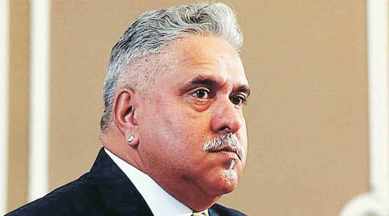Stay updated with the latest - Click here to follow us on Instagram
Extraditing Vijay Mallya to India won’t be that easy: Here is the process
Vijay Mallya's extradition itself may not be as easy as India falls under a secondary category of countries, extradition to which are a long and arduous process.

Liquor baron Vijay Mallya was arrested by the Scotland Yard on Tuesday on an extradition warrant from London, UK. He was granted bail after a short while. The beleaguered businessman is wanted in multiple cases such as loan default, cheque dishonour and diversion of funds. He was arrested a little over a year after he fled from India last year in March. Several of India’s requests for Mallya’s arrest and deportation during the past year have been rejected. Though Britain has said it can offer help in Mallya’s extradition. Although this current arrest was certified by the UK on special request from the Indian government, the extradition itself may not be as easy as India falls under a secondary category of countries, extradition to which are a long and arduous process unlike the category 1 countries that have priority.
According to the British Crown Prosecution Service (CPS), “Extradition is the formal procedure for requesting the surrender of persons from one territory to another.” The CPS provides that extradition can be done for specific purposes like prosecution, sentencing of a convict and execution of the imposed sentence. In this case, India will put in an export extradition request with the magistrate. UK doesn’t recognise all offences as extraditable, particulars of which are enshrined within treaties or instruments signed with specific countries.
READ: Vijay Mallya arrested in London, granted bail by Magistrates’ Court
India’s category 2 status
Export extradition to India is governed under Part 2 of the Extradition Act of UK. Countries listed in the category are outside the European Union. At present, there are over 100 states as part of the list.
When an extradition request is received from a category 2 country, the Secretary of State of the Home Department takes the call on whether or not the extradition request should be certified. The Secretary usually takes advice from the Home Office’s International Criminality Unit.
READ: Vijay Mallya arrest: Scotland Yard issues statement, court grants him bail
After certification of the request, it is sent to the Westminster Magistrates’ Court. All proceeding in the extradition cases are heard in this court and the CPS is the representative of the requesting country.
The district judge, upon receiving all relevant documents related to the case, decides whether an arrest warrant should be issued or not. The judge takes a call on whether the offence is an extraditable offence.
Also, there must be sufficient ground for the judge to conclude that if the case was of a domestic nature, the warrant would still be justifiable. In simpler terms, the offence for which extradition is requested should also be an offence in the UK and should warrant an arrest of the concerned party.
READ: Vijay Mallya arrested in London: Big success for govt and finance ministry, says Jitendra Singh
After the issue of warrant, the person is brought to the Westminster Magistrates’ Court as soon as practicable. An initial hearing is done and then a date is fixed for extradition hearing.
In the initial hearing, the arrested person is apprised of the contents of the extradition request by the district judge. A date for the subsequent extradition hearing is fixed within two months from first appearance. At that point, the judge has the option of either granting bail to the person or remanding him to custody till the time his/her extradition hearing is not done.
READ: Timeline: Vijay Mallya’s financial defaults that led to his arrest in London
In the extradition hearing, the judge decides that the documentation received from the Secretary of State’s office are in consonance with the Extradition Act. It is also verified whether the person presented in court is the one for whom extradition is requested. It is also decided whether the offence falls under the category of extradition offences. Upon deciding that the request doesn’t violate the European Convention on Human Rights and there are no bars to extradition, the hearing is taken forward. It is then sent to the Secretary of State’s office who must decide on issues like sentencing. If there is a possibility of death sentence, extradition is rejected. Also a rule of speciality must be abided by.
If all is cleared, Secretary of State can order extradition within a period of two months.
Now, the Act allows both the requesting state and the wanted person a right to appeal against the decision of the district judge at Westminster Magistrates’ Court or the Secretary of State with the High Court. The appeal can even be taken to the Supreme Court but only when High Court approves that the appeal relates to a point of law “which is of general public importance”.
Requests can be rejected in cases of double jeopardy, extraneous considerations – if the request is deemed to prosecute or punish on account of race, religion, nationality, gender, sexual orientation or political opinions. Passage of long period since the offence, age of wanted person, forum, proportionality and absence of decision to charge and try also ground on which extradition is rejected.